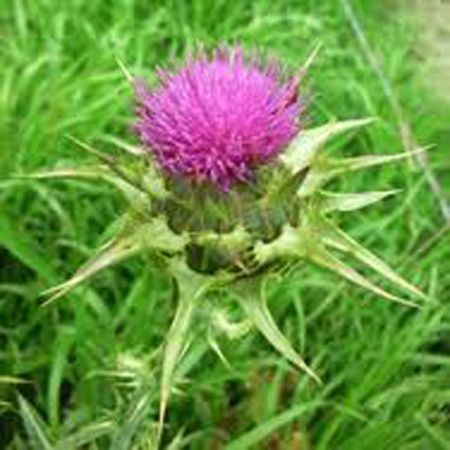
Silymarin is derived from Milk Thistle (seed extract from the flower of silymarin plant). The Milk thistle herb is a flowering plant of Silybum Adans genus, a member of the daisy family (Asteraceae). It grows mainly in North Africa, the Mediterranean region and the Middle East (now also grown in the U.S.) but is marketed and is widely available in the Philippines as a herbal liver supplement (silymarin capsules, trademark: Liveraide). Silymarin and milk thistle are frequently used interchangeably.
Silymarin is a polyphenolic flavanoid consisting of three chemicals: silybin, silicristin and silidianin which are antioxidants that neutralizes and breaks down free radicals. When there is an existing liver damage, research shows that silymarin may help repair the damage and help regenerate new liver cells but is unlikely to help in the late stages of liver cirrhosis.
In very rare instances, silymarin can cause headaches, upset stomach and joint pains. Silymarin is not recommended during pregnancy. Dozes over 1.5 grams a day may cause diarrhoea. It is recommended that you consult with your doctor or a health care provider before taking silymarin herbal supplements, liver supplements or any herbal medicine.
Uses
Help improve liver function for those with cirrhosis of the liver and chronic hepatitis.
• Prevents inflammation of the liver
• Cure for Amanita phalloides mushroom poisoning
• Helps control blood sugar in patients with diabetes and cirrhosis.
• Helps lower cholesterol levels.
• Reduces growth of breast, prostate, cervical and skin cancer cells.
• Helps reduce fatty infiltration on the liver caused by toxins and alcohol.
• A strong antioxidant that helps fight free radicals (see Key to Healing).
• Not used to prevent hepatitis C, but used to minimize the damage caused by it.
• Non-toxic / no known overdose symptoms.
No comments:
Post a Comment